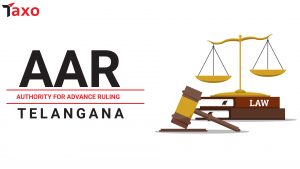
The Authority for Advance Rulings, Telangana in the case of M/S. CENTER FOR INTERNATIONAL ADMISSION AND VISAS (CIAV) vide A. R. Com/11/2024, TSAAR Order No. 09/2024 dated 09.05.2024, has ruled that Services provided by Indian information-technology (IT), marketing, and consulting companies to foreign clients may not always draw integrated goods and services tax (IGST). The AAR gave its ruling on a specific case of referral services provided by the Hyderabad-based Center for International Admission and Visas (CIAV) to foreign universities and colleges for admitting Indian students. The company does not have any binding agreement with universities, colleges, or students for guaranteed admission in particular places. The AAR holds the scope of an “intermediary” did not include a company that supplied services on its own account. In the present case, the company is under a principal-to-principal contractual relation with the foreign universities and colleges and it is providing its independent and main service of marketing and referral to them. Besides, the company does not influence the selection process of prospective students to a contracted university.
Facts of the case:- The applicant has made a detailed argument to establish that they do not function as an agent or intermediary for foreign colleges and universities. They clarify that their role is limited to providing marketing, recruitment, and referral consultancy services to these foreign institutions on a principal-to-principal basis. They do not directly engage with prospective students nor do they have any responsibility for the services provided by the foreign colleges and universities to these students.
The applicant contends that they do not meet the criteria of an ‘intermediary’ as defined in Section 2(13) of the IGST Act since they do not act as a facilitator between two parties nor do they provide ancillary services alongside the main service provided by the foreign institutions. Instead, they provide independent marketing and recruitment services directly to the foreign colleges and universities.
Regarding the place of supply for their services, the applicant asserts that since they are located in India while the recipients of their services (foreign colleges and universities) are located outside India, their services should be governed by Section 13(2) of the IGST Act. According to this section, the place of supply for such services would be the location of the recipient, which in this case, is outside India.
Furthermore, the applicant argues that their services should qualify as ‘export of service’ as per Section 2(6) of the IGST Act, provided that they receive payments in convertible foreign exchange. This would imply that their services are eligible for zero-rated tax treatment.
Overall, the applicant contends that their services do not fit the definition of an intermediary, and they should be considered as providing export of services, with the place of supply being outside India.
AAR Rulings:-The AAR ruled as under
Qualification as an ‘Intermediary’: The authority concluded that the Applicant should not be considered as an ‘intermediary’ under Section 2(13) of the IGST Act. This determination was based on several factors:
- The Applicant operates on a principal-to-principal basis with foreign colleges and universities.
- The Applicant’s role is specific and expertise-based, focusing on preparing and referring student cases to foreign institutions.
- The Applicant does not have a contractual relationship with prospective students and does not influence the selection process of these students by the foreign colleges/universities.
- The Applicant receives referral income or commission solely from the foreign colleges/universities, not from the prospective students.
Liability to GST or Qualification as ‘Export of Services’: The authority ruled that the activity of the Applicant should qualify as ‘export of service’ under Section 2(6) of the IGST Act, provided that payments are received in convertible foreign exchange. This determination was based on the following:
- The Applicant is located in India, while the recipient of its services (foreign colleges/universities) is located outside India.
- The nature of the Applicant’s services, being marketing/recruitment/referral consultancy, falls under Section 13(2) of the IGST Act to determine its place of supply, which is outside India.
- The Applicant and foreign colleges/universities are not related establishments according to Explanation 1 to Section 8 of the IGST Act.
To summarize the ruling clarifies that the Applicant’s services do not qualify as intermediary services, and they are eligible for ‘export of service’ treatment under the IGST Act, subject to receiving payments in convertible foreign exchange.


